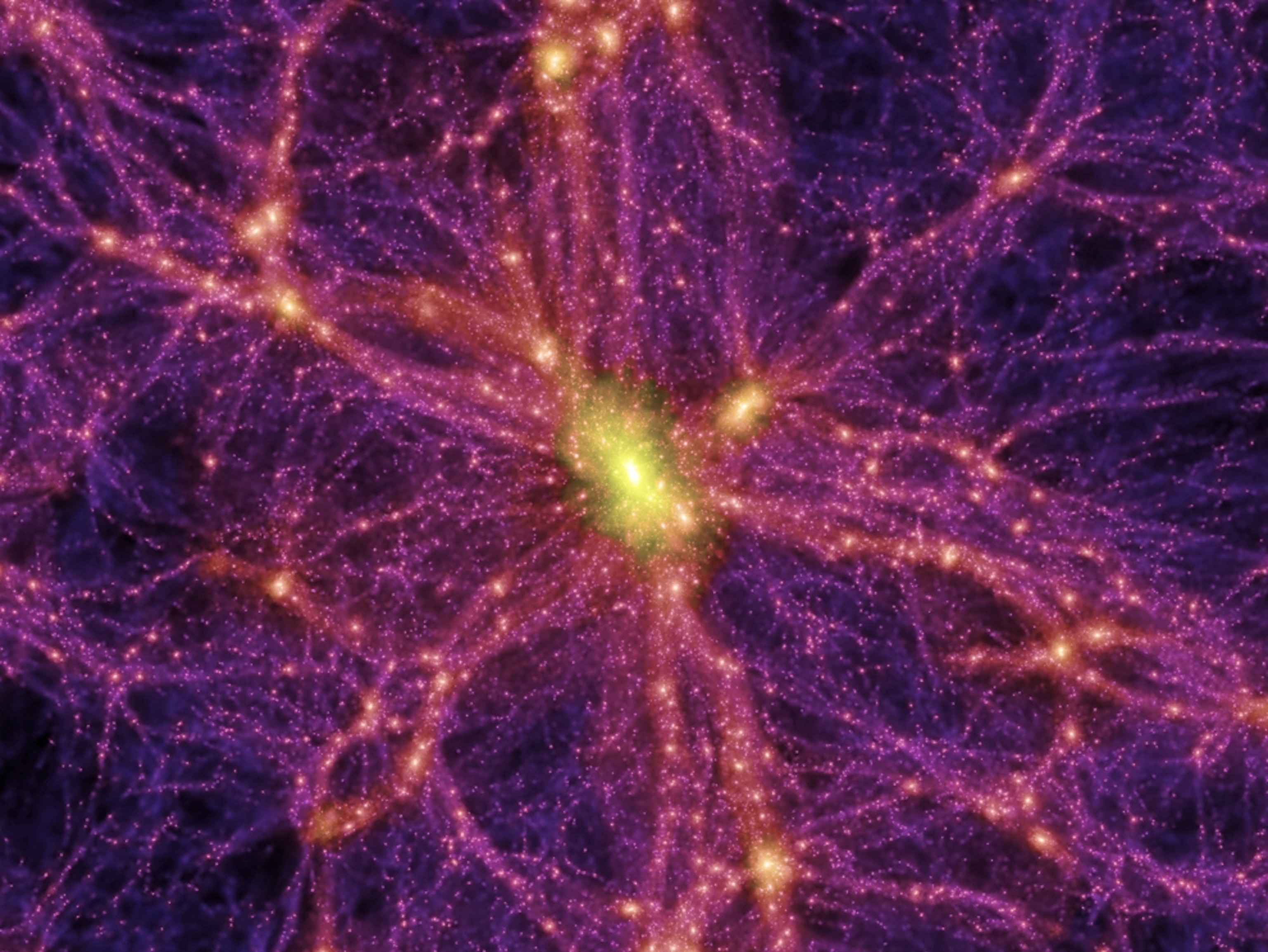Dark energy, the mysterious force driving the accelerated expansion of the universe, poses intriguing questions for scientists and cosmologists alike. Recent findings from the Dark Energy Spectroscopic Instrument (DESI) collaboration highlight that this cosmological constant may not be as constant as once believed; it could be diminishing over time. This revelation shifts our understanding of the universe’s dynamics and challenges the standard models that have guided dark energy research. With over 900 researchers participating from more than 70 institutions globally, the DESI collaboration is at the forefront of uncovering the complexities of this fundamental force. As we delve deeper into dark energy’s role, the implications for the future of the universe become increasingly profound, prompting scientists to rethink existing theories and explore new avenues in cosmology.
The enigmatic concept of dark energy is a pivotal element in contemporary astrophysics, intriguing researchers as they explore the underlying mechanisms that power the universe’s expansion. Often referred to as the cosmic accelerator, this phenomenon complicates our understanding of the cosmos. The latest investigations led by the DESI initiative involve extensive analyses that examine the influences of this unseen energy across vast temporal scales. As the scientific community harnesses advancements in technology and collaboration, the pursuit of knowledge regarding this compelling aspect of the universe intensifies. Such efforts not only shed light on dark energy but also pave the way for future exploration into the structure and fate of the cosmos.
Understanding Dark Energy: The Cosmos’ Driving Force
Dark energy is a mysterious force that is fundamentally reshaping our understanding of the universe. It is hypothesized to make up about 68% of the cosmos, acting as a counterbalance to gravity and driving the accelerated expansion of the universe. The Dark Energy Spectroscopic Instrument (DESI) initiative serves to elucidate the characteristics and behavior of dark energy, allowing astronomers to map its effects over time. By analyzing over 14 million galaxies and quasars, DESI is gathering invaluable data that could redefine our theories of cosmic evolution and the universe’s ultimate fate.
Recent research indicates that dark energy might not be as stable as previously thought. Traditionally understood as a constant force, the new findings suggest its influence may be fluctuating. This revelation could lead to significant implications for the cosmological constant—a crucial factor in equations that govern gravitational forces in our universe. If dark energy is indeed weakening, researchers could be looking at a future where the accelerating expansion might slow down, potentially altering the final outcome of the cosmos.
The Role of DESI in Mapping the Universe
The Dark Energy Spectroscopic Instrument (DESI) collaboration represents a colossal effort among over 900 scientists from more than 70 institutions worldwide. It aims to create the most comprehensive 3D map of the universe, observing how dark energy interacts with various cosmic structures over an expansive time frame. By employing advanced algorithms and simulations, the collaboration is meticulously examining the distribution of matter, which is influenced by dark energy’s behavior, and this, in return, elucidates the expansion dynamics of the universe.
Through the analysis of Baryon Acoustic Oscillations, a key signature of the universe’s expansion, researchers can draw conclusions about the fluctuations in dark energy’s strength over the last 11 billion years. This innovative approach not only corroborates past cosmic events but also sets the stage for future dark energy research, as scientists strive to comprehend how these cosmic forces have shaped galaxies and the larger structure of the cosmos.
Cosmological Studies and Future Predictions
The findings emerging from the DESI collaboration carry profound implications for cosmology. With the accurate mapping of dark energy’s impact on a universal scale, scientists are positioned to make better predictions about the universe’s future. If dark energy is indeed changing, it raises questions about how it would influence the rate of cosmic expansion. Current models suggest that if dark energy weakens, it could lead to a deceleration in the rate at which the universe expands, potentially inviting a scenario where cosmic evolution deviates from its predicted pathway.
This could also result in the need for an updated theoretical framework around the cosmological constant, which has long been a cornerstone in understanding cosmic phenomena. The ability to observe and analyze these subtle shifts through collaborative research initiatives like DESI empowers scientists with the tools to challenge existing paradigms and push the boundaries of astrophysics further, exploring the deeper mysteries of the universe.
Implications of Changes in Dark Energy
Understanding changes in dark energy is not merely an academic endeavor; it has tangible implications for our comprehension of the universe. The information gleaned from DESI’s data sets can help interpret behaviors of distant galaxies and predict how they will evolve over time, deeply enriching our knowledge of cosmic dynamics. If dark energy is observed to weaken, this understanding could revise our long-held beliefs about the fate of galaxies within the universe and their interactions with each other.
This investigation into dark energy also contributes to broader astrophysical research, including galaxy formation and the existence of cosmic structures such as clusters and voids. By appreciating how dark energy influences these components, researchers gain insights into the delicate balance that defines the universe, paving the way for deeper explorations into the mysteries of existence.
The DESI Collaboration: A Global Effort
The DESI collaboration embodies a monumental international effort in astrophysical research. Managed by the U.S. Department of Energy’s Berkeley Lab, its success arises from the unity of over 900 researchers, each contributing unique expertise to unravel the complexities of dark energy. This collaboration not only generates data for scientific advancement but also fosters cross-institutional knowledge sharing that enhances the understanding of the universe across diverse research communities.
The global scope of DESI illustrates the significance of cooperative science in addressing big questions about cosmic evolution. Presenting findings at major scientific conferences and papers published in accessible repositories, the collaboration makes its research available to a wide audience, encouraging further inquiry into dark energy, its effects, and the ultimate fate of the universe.
Exploring the Cosmic Web Through DESI Data
The cosmic web, a sprawling structure comprising galaxies interconnected by filaments of dark matter and gas, is now more accessible to researchers thanks to DESI’s extensive mapping efforts. By utilizing precise measurements of dark energy and matter distribution, scientists can study the intricate behaviors of galaxies within this vast network. The interplay between dark energy and galaxy formation is crucial in understanding how these celestial entities grow and evolve.
As data continue to pour in from DESI’s nightly observations, astronomers are positioned to unravel the complexities of the cosmic web. Each discovery contributes to a comprehensive understanding of how dark energy influences not only the immediate properties of galaxies but also the larger formations within the universe, further deepening our grasp of cosmic architecture.
Dark Energy’s Role in the Cosmic Landscape
The study of dark energy plays a pivotal role in painting a holistic picture of the cosmic landscape. As researchers at the CfA and within the DESI collaboration dissect the forces at play, they illuminate how dark energy interacts with other fundamental components of the universe. This relationship is essential for understanding not only the dynamics of cosmic expansion but also the formation and behavior of various celestial structures.
Through investigations into dark energy’s role, scientists are unveiling significant insights regarding the evolution of the universe. The implications of these discoveries stretch far beyond theoretical frameworks, potentially affecting everything from the life cycles of galaxies to the nature of dark matter itself. As such, the ongoing analysis of dark energy remains a central tenet of contemporary cosmology.
The Interplay of Matter and Dark Energy
The relationship between matter and dark energy is crucial to comprehending the universe’s fate. Dark energy’s role as a force opposing gravitational attraction leads to intriguing phenomena within the cosmic structure. Researchers are exploiting the gap in understanding how these two forces interact, particularly through the use of DESI’s extensive galaxy maps, to elucidate complex patterns and behaviors observed throughout cosmic history.
As scientists continue to delve into this interplay, they are unlocking new avenues for interpreting dark energy’s influences on galaxy evolution and structure formation. Emerging research indicates that even subtle changes in dark energy could profoundly impact how we conceive matter’s role within the universe, demanding a reconsideration of foundational scientific concepts in astrophysics.
Future Research Directions in Dark Energy
With the ongoing accumulation of data from the DESI collaboration, the future of dark energy research is bright and full of possibilities. The wealth of information about the universe’s structure will not only enhance current theories but also introduce novel hypotheses regarding the nature of dark energy and its fluctuations. Key areas of focus include further examination of the accelerating universe and potential anomalies in the behavior of dark energy.
Future research may also delve into the characterization of dark energy through alternative methods. Investigating its effects in relation to larger cosmic events and mapping unknown parameters of dark energy could lead to groundbreaking advancements in cosmology. As DESI continues its mission, the uncharted realms of understanding dark energy and its consequences present both challenges and exciting opportunities for researchers.
Frequently Asked Questions
What is dark energy and how does it affect universe expansion?
Dark energy is a mysterious force that makes up about 68% of the universe and is believed to be responsible for its accelerating expansion. It counteracts the gravitational pull of matter, leading to a speed-up in the rate at which galaxies are moving apart.
How does the DESI collaboration contribute to dark energy research?
The Dark Energy Spectroscopic Instrument (DESI) collaboration is pivotal in dark energy research, utilizing advanced technology to create a 3D map of the universe. By analyzing the distribution of over 14 million galaxies and quasars, DESI helps scientists understand how dark energy influences cosmic expansion over time.
What are the implications of the cosmological constant in dark energy studies?
The cosmological constant is a key concept in dark energy studies, suggesting a constant energy density filling space uniformly. Recent findings from the DESI collaboration imply that this constant may not be static, prompting reevaluation of the universe’s fate and the standard model of cosmology.
What recent findings from DESI suggest about the future of the universe?
Recent analyses from the DESI collaboration reveal that dark energy may be weakening over time, which indicates that the future of the universe might not follow previously accepted predictions. This changing dynamic could lead to significant shifts in our understanding of cosmic evolution.
What role does Baryon Acoustic Oscillation play in measuring dark energy’s effects?
Baryon Acoustic Oscillation (BAO) patterns act as a cosmic ruler to gauge dark energy’s impact on the universe’s expansion. By measuring the size of these patterns over time, researchers can evaluate how the strength of dark energy has changed throughout the cosmos.
How does dark energy research help us understand galaxy evolution?
Research on dark energy, such as that conducted by the DESI collaboration, helps elucidate the relationship between dark energy and galaxy evolution. By examining how dark energy affects the distribution and motion of galaxies, scientists can gain deeper insights into the cosmic web and structures like the Milky Way.
What is the significance of the latest DESI data release for dark energy research?
The latest Data Release 1 from the DESI collaboration is significant for dark energy research as it provides detailed information about millions of celestial objects. This dataset enhances the ability of astronomers to conduct comprehensive studies on dark energy and its effects on the universe.
How can the public engage with the DESI collaboration’s dark energy findings?
The DESI collaboration encourages public engagement by providing access to its Data Release 1. This allows individuals and researchers to explore dark energy findings and partake in ongoing astrophysical research, fostering a broader understanding of our universe.
| Key Point | Details |
|---|---|
| Dark Energy Analysis | The DESI collaboration investigates how dark energy affects the universe through an extensive analysis of cosmic structures. |
| Collaboration | Involves over 900 researchers from 70+ institutions, coordinated by Berkeley Lab. |
| Findings on Dark Energy | Results suggest dark energy may be weakening over time, challenging existing cosmological models. |
| Methodology | Utilized the largest 3D cosmic map, analyzing over 14 million galaxies and quasars. |
| Implications of Baryon Acoustic Oscillations | These early universe patterns help measure the expansion rate and dark energy’s influence. |
| Public Engagement | The collaboration is releasing data for public exploration and promoting outreach initiatives. |
| Future Research | Continuation of the DESI survey aims to enhance understanding of the universe’s structure and physics. |
Summary
Dark energy is a pivotal force in the universe, believed to drive its accelerating expansion. Recent findings from the DESI collaboration have raised significant questions about dark energy, suggesting it may be weakening over time, thus challenging long-standing cosmological models. This ongoing research not only aims to deepen our understanding of dark energy but also enhances insights into cosmic evolution and structures. As DESI continues its survey, the implications for dark energy and the universe’s fate will be closely monitored, marking an exciting era in astrophysical research.






